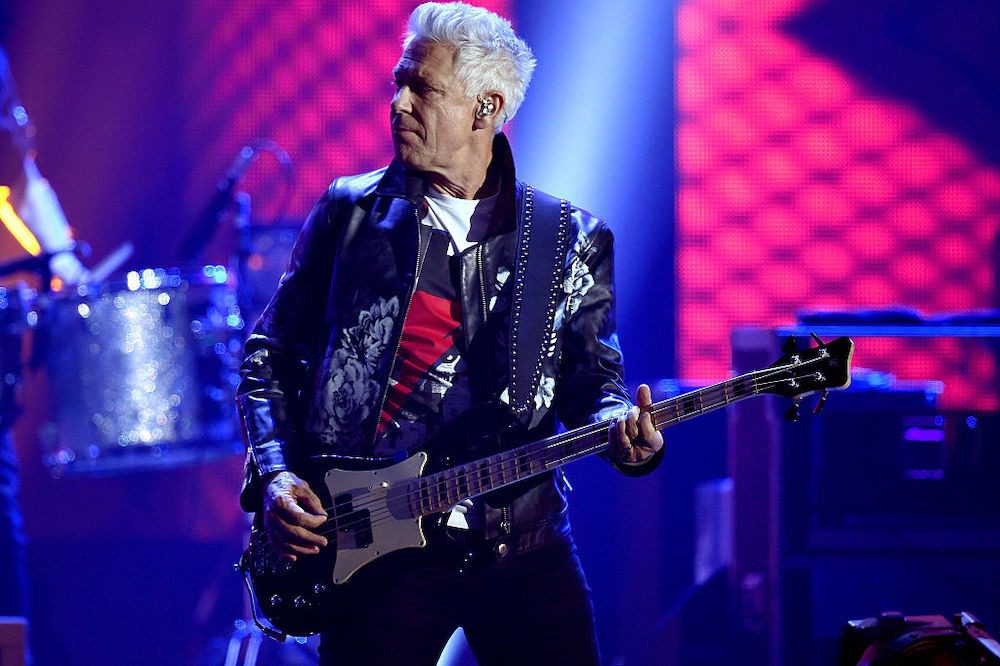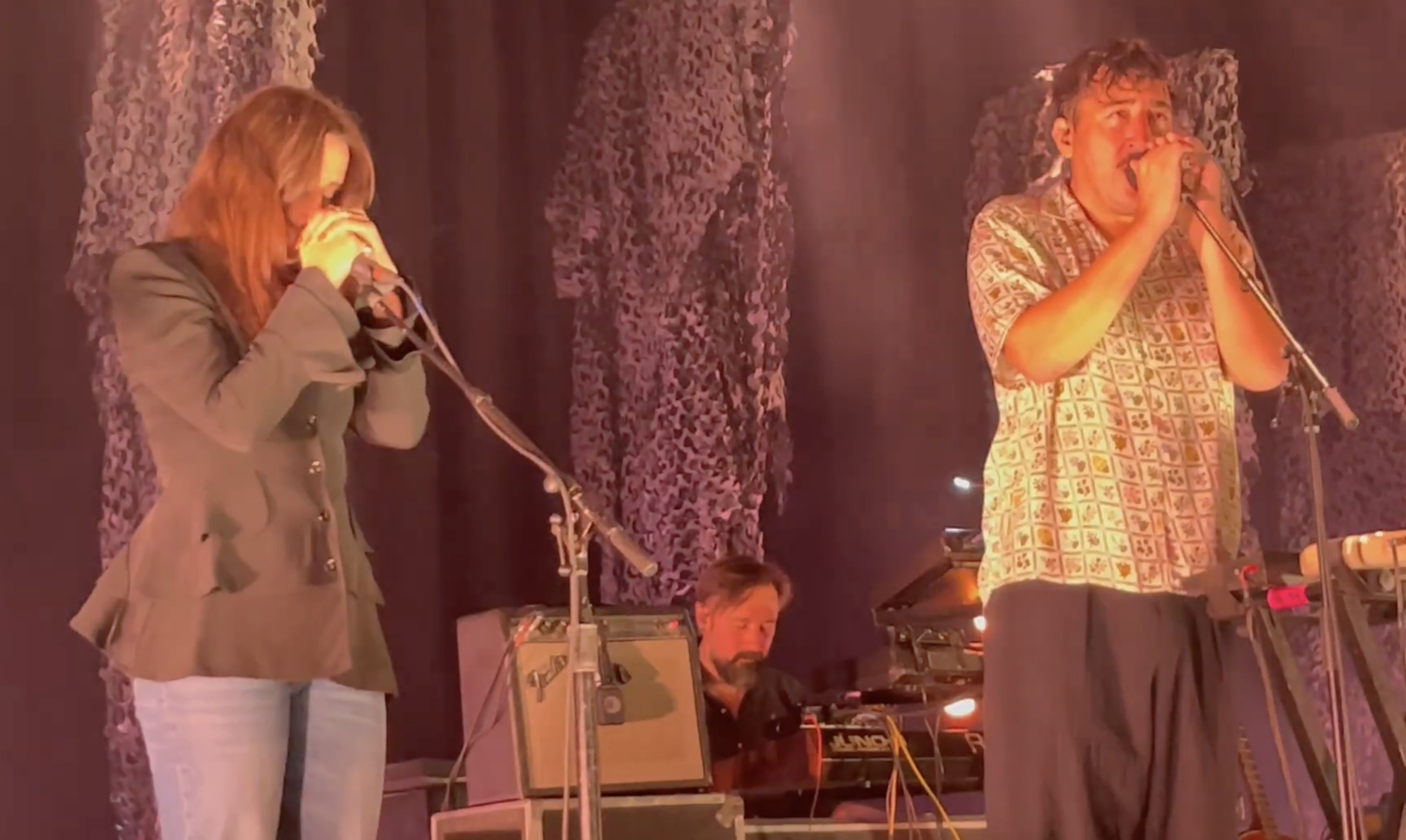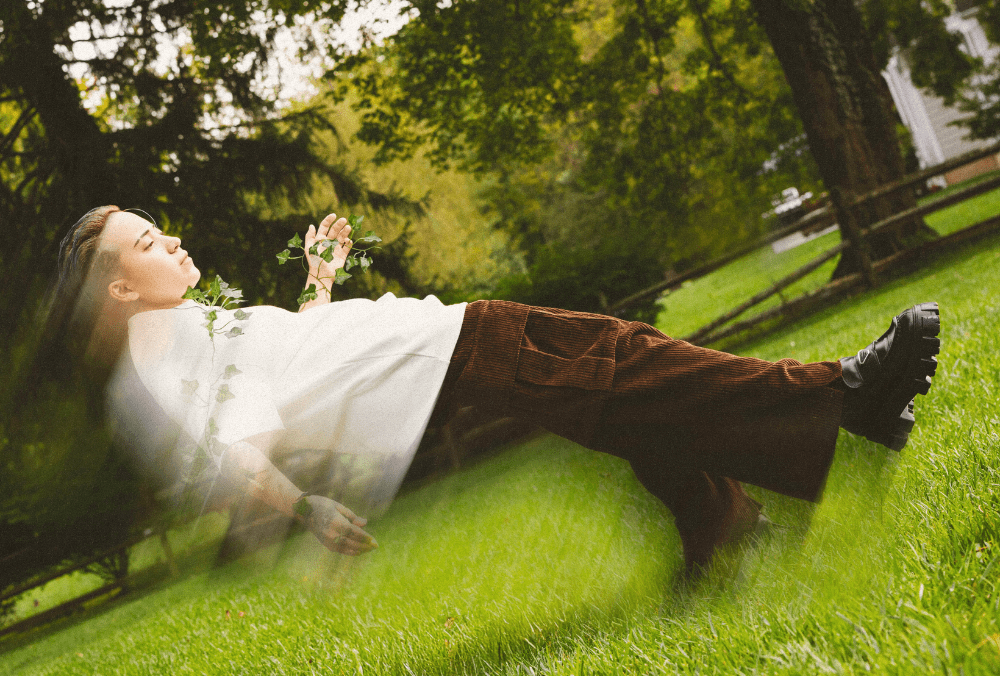U2’s Adam Clayton has been open about his battles with depression and addiction, and on Friday night the bassist visited Ireland’s The Late Late Show to discuss how quarantine can affect others who are struggling with their mental health.
“I think it’s hugely stressful for people to be inside, in small spaces, maybe with children, maybe having to work from home if people still have their jobs,” he explained, adding that these stressors could cause additional anxiety.
“For anyone under that kind of pressure, there is help out there,” he assured. “It’s hugely difficult to manage and in an isolated state, when you’re just stuck with your own head and the thoughts going on inside your head, that is extremely stressful.”
When asked about his “own run in with issues,” and how he overcame them, Clayton credited honesty.
“I guess honesty. Facing honesty. Facing that I needed to be a part of a community. I needed some sort of fellowship. I needed some sort of relationship with other human beings to talk about what was going on for me,” he said (via RTE). “Also, for me as someone doing very well in my career, when I looked around at my contemporaries it was hard for me to face that I was so unhappy within myself. Because everything around me was telling me that I should be on top of the world, that this was the greatest thing that could happen to me. But there was a sense of emptiness, and that’s what addiction brings, where you start to have a desire to get away from feelings and have a very low sense of self worth.”
“I was lucky,” he recognized. “I was able to take the time and I could afford to go into rehab and I really learnt how to think and how to be a human being in that situation. It gave me my life back. I have an amazing life. I can enjoy having a wife and a child and my bandmates, and I can also accept that I need a community to keep me well… I got my life back. I mean, that was 20 odd years ago now.”
U2 recently donated €10 million to COVID-19 relief efforts, and The Late Late Show viewers raised €2 million for Irish mental health nonprofit Pieta.




